
All categories
Featured selections
Trade Assurance
Buyer Central
Help Center
Get the app
Become a supplier

(346 products available)






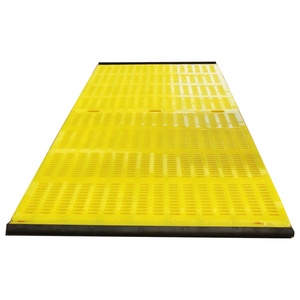







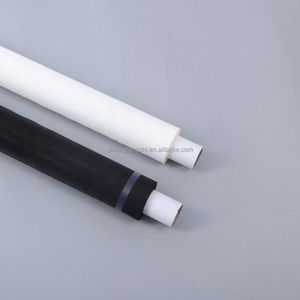



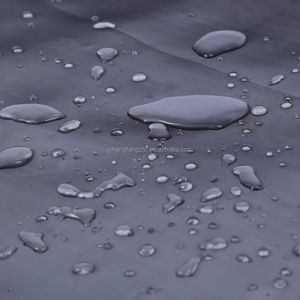













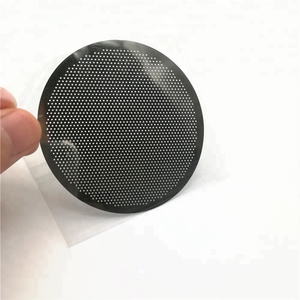
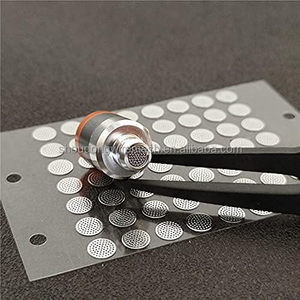











Chemical etching screen mesh has different varieties. They include:
Stainless Steel Screen Mesh
This screen mesh offers exceptional durability and resistance to corrosion. Such properties are particularly crucial in chemical etching processes. The etching process creates fine, intricate patterns on the mesh. Therefore, this makes it suitable for high-precision applications. Usually, it is widely used in industries such as electronics and aerospace. They incorporate stainless steel chemical etching screen mesh. Also, this screen is highly resistant to wear. Therefore, it ensures a longer operational life even under demanding conditions.
Nickel Screen Mesh
Often, nickel screen mesh is used in chemical etching due to its excellent corrosion resistance. Especially in acidic environments. The etching process on nickel mesh allows for precise designs. Thus, accommodating specialized filtration or separation needs. Widely, this type of screen is popular in chemical processing industries. They require materials that withstand harsh chemicals. Furthermore, nickel's inherent properties and adaptability to etching make it a preferred choice for customized filtration solutions.
Brass Screen Mesh
Commonly, brass screen mesh is used in chemical etching. This is due to its ease of handling and good corrosion resistance. In addition, the etching process on brass screens creates detailed patterns. Often, these patterns enhance the mesh's functionality for filtration purposes. Furthermore, this makes it ideal for applications in water treatment and HVAC systems. Its combination of durability and adaptability makes it a practical choice for varied industrial uses.
T304 Stainless Steel Etching Screen Mesh
T304 stainless steel etching screen mesh is favored for its chemical etching frame. Especially where strength and precision are vital. This alloy withstands corrosion and heat, making it suitable for use in harsh environments. Normally, the chemical etching process creates fine patterns. They enhance the mesh's performance for filtration and screening. In addition, this screen is popular in food processing, pharmaceutical, and petrochemical industries. Its long-lasting nature and high precision ensure efficiency and reliability in critical processes.
Chemical Etching Screen Mesh Filters
Usually, chemical etching screen mesh filters are vital components in industrial filtration systems. They provide an accurate and reliable filtering solution. Therefore, when the mesh is subjected to a chemical etching process, it creates precise openings. These are crucial in capturing fine particles and impurities. Also, the screen's high durability and resistance to corrosion ensure long-term performance even in challenging environments. This makes it useful in sectors like water treatment, chemical processing, and manufacturing.
A chemical etching screen mesh consists of the following key materials. They include:
Stainless Steel
Usually, it is the most common material used in making chemical etching screen mesh. This is due to its excellent corrosion resistance and durability. They offer a non-reactive surface. Therefore, it makes it suitable for use in chemically active environments. The tensile strength of stainless steel ensures that the mesh will maintain its structural integrity over time. Commonly, the most used grade for chemical etching screen mesh is T304. This is due to its outstanding balance of chemical resistance and mechanical properties.
Nickel Alloy
Often, nickel alloy is used to make screen mesh due to its superior resistance to acids. This includes acetic acid and sulfuric acid. In addition, nickel's non-magnetic properties make it ideal for specialized applications that require precision and durability. This includes electronic components and chemical processing equipment. Besides, the etching patterns on the nickel mesh improve its filtration efficiency. Also, it allows for finer separation compared to other materials.
Coper-Bronze
Commonly, copper-bronze mesh is used in applications where conductivity and corrosion resistance are required. Often, bronze alloys containing copper provide a resilient and durable option for chemical etching. This allows the mesh to resist degradation from corrosive agents such as seawater and various chemicals. This makes it an ideal choice for marine and outdoor applications. Besides, the etching process on copper-bronze mesh creates fine patterns. They enhance the mesh's strength and functionality.
Polymer-Coated Steel
Mostly, this combination provides a cost-effective alternative for chemical etching screen mesh. Usually, the steel core offers tensile strength and durability. While the polymer coating adds a layer of protection against chemicals. The coating can be customized to withstand specific corrosive agents. This makes it a versatile option for varied industrial applications. These include water treatment and air filtration, where chemical exposure is likely.
Chemical etching screen mesh has numerous industrial applications. They include:
Electronics Manufacturing
Often, it is used in printed circuit boards (PCBs) in the electronics industry. This is where precise patterns are required for the conduction pathways. The etching process allows for the creation of highly detailed, fine mesh patterns that are crucial in ensuring the functionality and efficiency of electronic devices. Normally, due to its precision and ability to create intricate designs, this mesh is indispensable in the increasing miniaturization of electronic components.
Aerospace Industry
Usually, the aerospace industry relies on chemical etching screen mesh. Especially in the production of lightweight yet strong components. This mesh will help in creating intricate patterns on aircraft parts. Often, these patterns are important in ensuring the structural integrity and performance of these assembled components. Besides, due to its unparalleled precision and ability to create complex shapes, it makes it suitable for critical applications where both weight and performance are highly essential.
Medical Devices
Commonly, in the medical field, chemical etching mesh is used for making filters, screens, and other precision components needed in medical equipment. The etching process creates detailed, fine patterns that are essential for accuracy in medical procedures. Thus, ensuring the reliability and sterility of medical devices. Their extensive usage in diagnosing and treating patients makes it indispensable in this highly regulated environment.
Water Filtration Systems
Usually, in the water treatment industries, Chemical etching screen mesh is widely used to improve the quality and purity of drinking water. The mesh is responsible for capturing impurities and suspended solids. Thus, its fine, detailed patterns enhance the efficiency of filtration. This is done by allowing water to pass more freely while retaining harmful particles. Moreover, its durability ensures long-term performance even in contents with heavy turbidity.
Petrochemical Industry
In the petrochemical industry, chemical etching screen mesh is employed in separating and processing critical chemicals and hydrocarbons. The mesh's resistance to corrosive substances makes it an ideal choice for this harsh environment. Therefore, the etching patterns improve the system's overall efficiency by providing finer separations. This leads to higher purity levels for processed outputs. Also, this is essential for maintaining product quality and safeguarding equipment longevity.
Here are some key factors to consider in order to select chemical etching screen mesh.
Mesh Material
Commonly, the material used to make chemical etching screen mesh impacts its performance and durability. Usually, options include stainless steel, nickel, and cooper-bronze alloys. Therefore, choose a material that is compatible with the chemicals in the intended environment. Also, consider mechanical properties like tensile strength and flexibility.
Mesh Size
Usually, the mesh size selected affects the filtration efficiency. Thus, finer meshes will provide higher filtration precision. On the other hand, larger meshes are suitable when dealing with thicker materials or higher flow rates. Therefore, choose a size that balances the needs for precision and flow rate in accordance with the intended application.
Wire Diameter
The wire diameter will partly determine the strength and flexibility of the etching screen mesh. Ideally, thicker wires offer more durability and are suitable for heavy-duty applications. Conversely, thinner wires provide greater precision and are suitable when finer filtration is needed. Choose the diameter that will strike the required balance between flexibility and durability.
Chemical Resistance
This is a crucial factor to consider. Especially when choosing a material for a new application. Usually, it should be resistant to specific chemicals that will be present in its environment. For instance, nickel is ideal for highly acidic environments, while copper-bronze provides exceptional resistance to seawater and other corrosive agents.
Customization Options
In some cases, standard mesh sizes and patterns might not suffice. Therefore, certain manufacturers offer customization services to meet unique requirements. Usually, they include specific mesh patterns or tailored sizes. This makes them suitable for specialized industries. Besides, customized screens are known for their enhanced performance. Also, this is due to their design integration that incorporates unique processes requirements.
Customization Options
In some cases, standard mesh sizes and patterns might not suffice. Therefore, certain manufacturers offer customization services to meet unique requirements. Normally, they include specific mesh patterns or tailored sizes. This makes them suitable for specialized industries. Besides, customized screens are known for their enhanced performance. Also, this is due to their design integration that incorporates unique processes requirements.
Durability and Maintenance
The longevity of the chemical etching screen mesh usually depends on its usage. It can be enhanced through the selection of durable materials like stainless steel and nickel alloys. Also, consider the maintenance requirements to ensure long-term efficiency. Easy-to-clean meshes will minimize downtime and operational costs.
Here are some questions and answers buyers might have regarding chemical etching screen mesh.
A1. Usually, it is used for precise filtration in industrial applications. Commonly, these meshes are employed in electronics manufacturing, water treatment, and the petrochemical industry. Also, they are suitable for high-precision needs due to their intricate patterns.
A2. The process of chemical etching creates fine, detailed patterns on the screen mesh. This enhances the mesh's functionality by allowing it to capture smaller particles. Also, this improves filtration efficiency in various applications.
A3. Normally, they include nickel alloys, brass wire mesh, copper, and stainless steel. These materials offer different levels of durability, corrosion resistance, and precision. Therefore, they make them suitable for varied industrial environments.
A4. Stainless steel is renowned for its durability and excellent resistance to corrosion. It makes an ideal choice, especially in environments that are chemically active. Moreover, it maintains its structural integrity over time, thus ensuring reliable performance.
A5. Yes, many manufacturers offer customization options for mesh size, pattern, and material. This enables the screen to meet unique requirements in specialized industries. Therefore, this ensures optimal performance for customers’ specific applications.